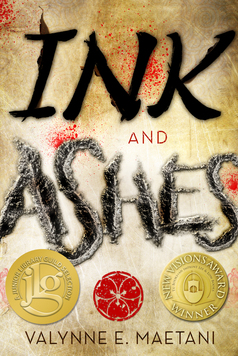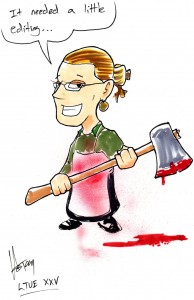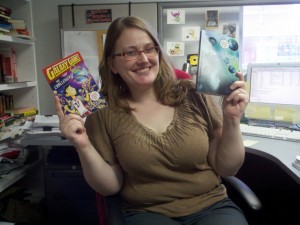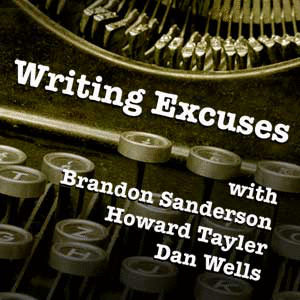This post was originally posted on the Lee & Low blog.
 I’ve long been a fan of mysteries. Trixie Belden was my BFF as a third and fourth grader. Nancy Drew was another favorite. Veronica Mars updated the teen sleuth idea, bringing the storytelling form to a new generation.
I’ve long been a fan of mysteries. Trixie Belden was my BFF as a third and fourth grader. Nancy Drew was another favorite. Veronica Mars updated the teen sleuth idea, bringing the storytelling form to a new generation.
When I got the chance to work on Valynne Maetani’s Ink and Ashes, our new YA mystery which comes out in June, all of those mysteries and more were going through my mind. Claire, the main character, has the spunk and curiosity of Veronica Mars and all of her predecessors, but she’s also a little different. And to honor those differences in the editing process, I needed to refresh myself on what’s out there right now in the teen mystery/suspense genre, and the mystery genre in general.
As I was editing Ink and Ashes over the course of about a year and a half (which spans two developmental edits and a line edit), between edits I was reading mystery after mystery. I stocked up on Agatha Christie, I rewatched Miss Fisher’s Murder Mysteries and read the first book of the series it’s based on (Cocaine Blues by Kerry Greenwood), I read multiple YA suspense, spy, and murder mysteries.

That reading reminded me that a great mystery read requires the same elements as any good read: well-paced plotting, characters the reader cares about enough to want to know what happens next; even world-building, though that’s a term we generally associate with speculative fiction, is tremendously important in setting the stage in a mystery. But my rereading of classic and contemporary mysteries also showed me that more than in any other genre, a sense of suspense and danger must permeate the mystery book, must drive the reader to breathlessly wonder what will happen next.
Ask probing questions
One of the biggest challenges in this edit—with any edit, really, especially with an author you’ve never worked with before—was discovering how to bring the author’s vision of the characters fully to life. An editor’s job is often to just ask questions: Why is this happening right now? Why would that character decide to do this? What is the goal here?
In that way, figuring out the goal allows the editor to ask further probing questions on what the solution might be—figuring out how current plot points and character decisions hamper the desired effect.
“The plot thickens” turns out to be true
The biggest thing I learned while editing Ink and Ashes and reading all these mysteries is the importance of plot escalation. In the original draft, clues did of course build up into a frenzied final few pages of conflict that were very enjoyable—that’s one of the reasons the book won our New Visions Award. But comparing the early manuscript to mysteries I enjoyed the most, I realized that there were so many ways that the narrative could be complicated. (Valynne was on the same page. As she waited for the results of the contest, she was also already thinking of ways to improve the manuscript. That kind of editor-writer synergy makes a huge difference in any book project like this.)
We looked at the end goal, and discussed the plot points that got Claire and her friends to that point. In particular, we discussed how the inciting incident—the moment that gets Claire to veer her course to investigating whether her father and her stepdad ever knew each other—might be complicated and how those complications would have a ripple effect that would improve multiple other plot points, and increase the pacing.
In other words, escalation. If the reader didn’t feel the suspense at every page turn, we had work to do.
Valynne worked very hard on making that happen, and I’m very happy with the results! In answer to all my probing questions, Valynne improved on an already-well written manuscript to bring what was an interesting read to the level of an exciting page-turner that’s getting readers hooked. That’s the end goal for any editor and author: Creating a final book that readers can’t put down. I’m happy to say, we succeeded with Ink and Ashes.


